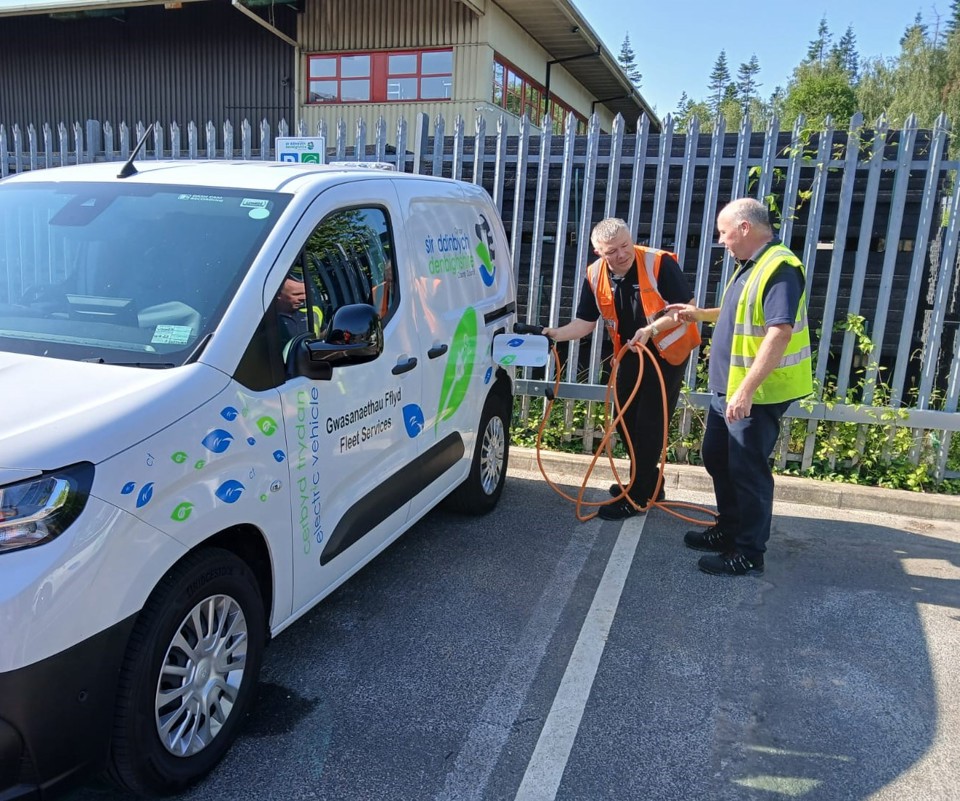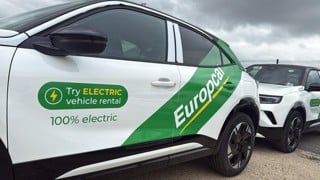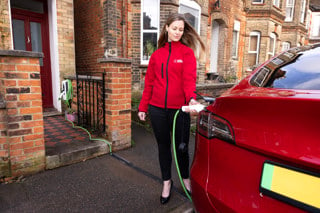Denbighshire County Council has developed an in-house electric vehicle (EV) training programme for its staff as part of its transition to zero-emission vehicles.
Currently, more than 500 members of staff have been trained under this programme.
The council declared a climate and nature emergency in 2019, and has since been adopting zero-emission vehicles (ZEVs) into its fleet. Currently, more than 20% of its vehicles in its fleet are made up of ZEVs.
Denbighshire County Council's fleet mobility lead officer, Martin Griffiths, said: “As part of our council climate change and nature recovery strategy we are committed to reducing carbon emissions across the local authority, which includes our fleet.
“We have been transitioning our end of live fossil fuel powered vehicles over to electric with significant support from Welsh and UK Government departments to help us cut down on emissions produced and also reduce long-term costs for miles and maintenance across all services our fleet supplies to."
The training includes how to utilise the EV charging infrastructure safely and efficiently, making use of regenerative braking systems, and when to select a 'driving mode' based on conditions or payloads.
The training is CBTM 1877 certified (an internal certification system that the council uses for its EV driver training programme) and has four levels of qualifications:
- Level one, the bronze level, covers cars and small vans.
- Level two, the silver level, covers LGVs, such as refuse recycling vehicles.
- Level three, the gold level, covers buses and plant machinery.
- Level four, the platinum level, is an instructor qualification.
Each level includes everything covered in any prior levels.
David Baker, senior driver training and assessment officer, added: “A key part of this is helping staff actually learn more about what an EV can do positively for travel and for the environment and coaching them to get the best out of this equipment.
“Effectively the training helps maximise the ability of these cars driven by staff to increase vehicle efficiency and reduce long term costs. It’s also good to help individual staff as well to make their own decisions regarding moving to an EV for personal use.”
Other local authorities in Wales have taken notice of Denbighshire County Council's in-house EV training, with a view of utilising similar models when reducing carbon emissions in their own fleets or vehicles.
“We are sharing our good practice and experiences with other Welsh councils and public sector bodies to help them with their own transition to zero emission," Griffiths confirmed.
“Being able to carry the training out in-house and learn from the experiences of our own staff using the EVs has been a massive bonus for how we continue to shape our fleet to tackle carbon emissions in the future.”



















Login to comment
Comments
No comments have been made yet.